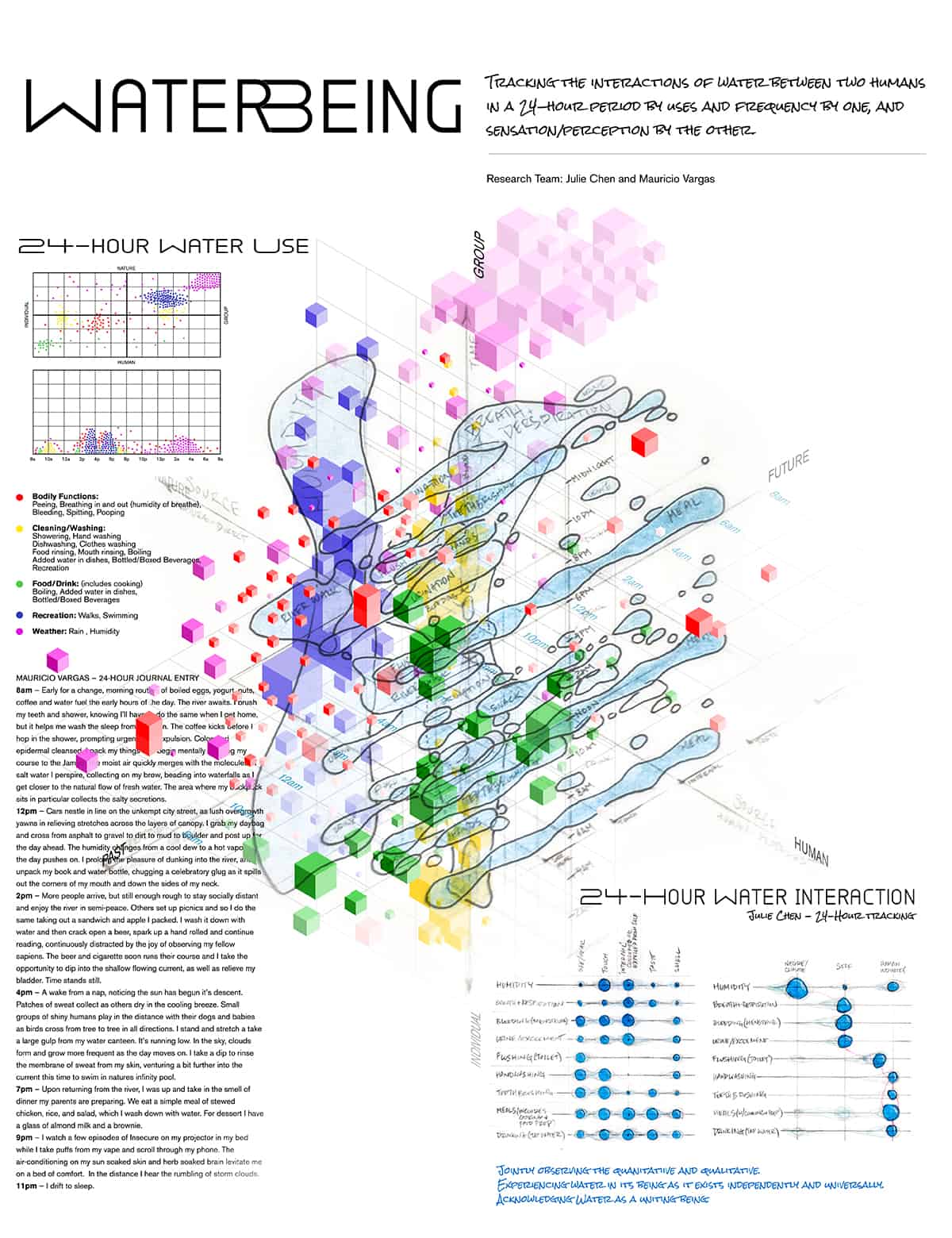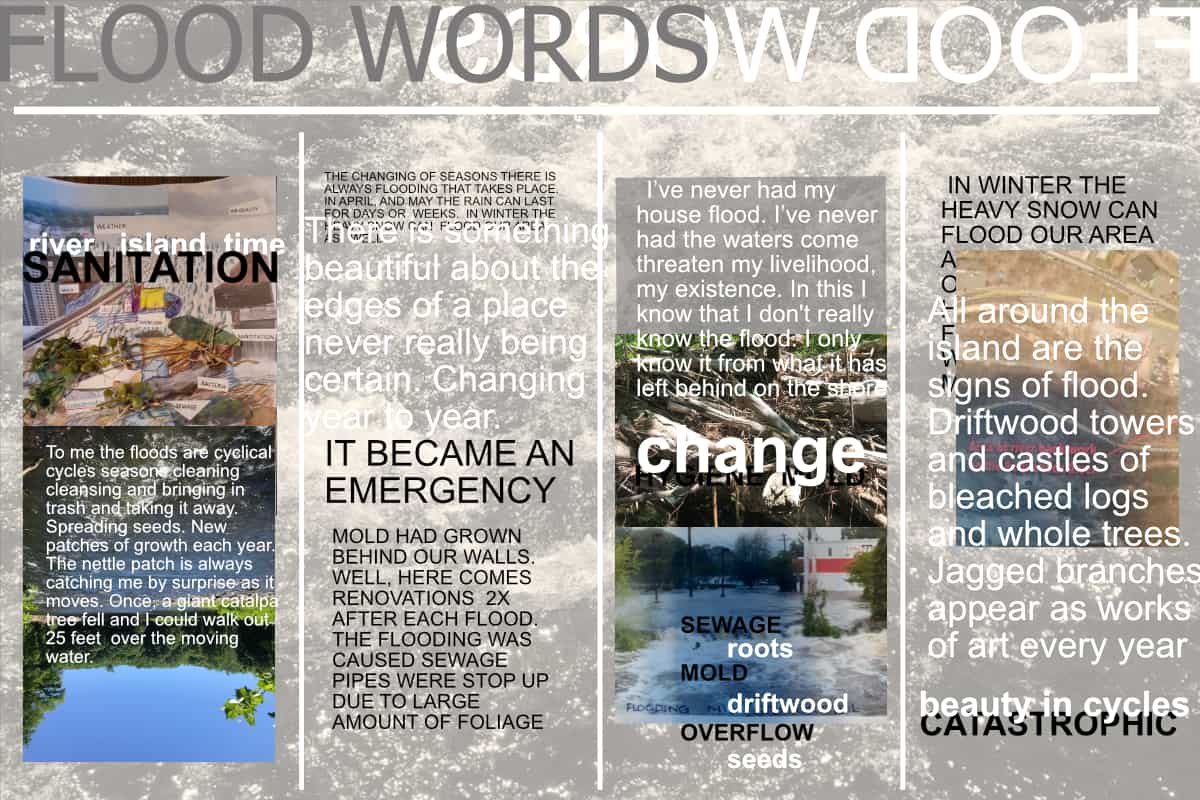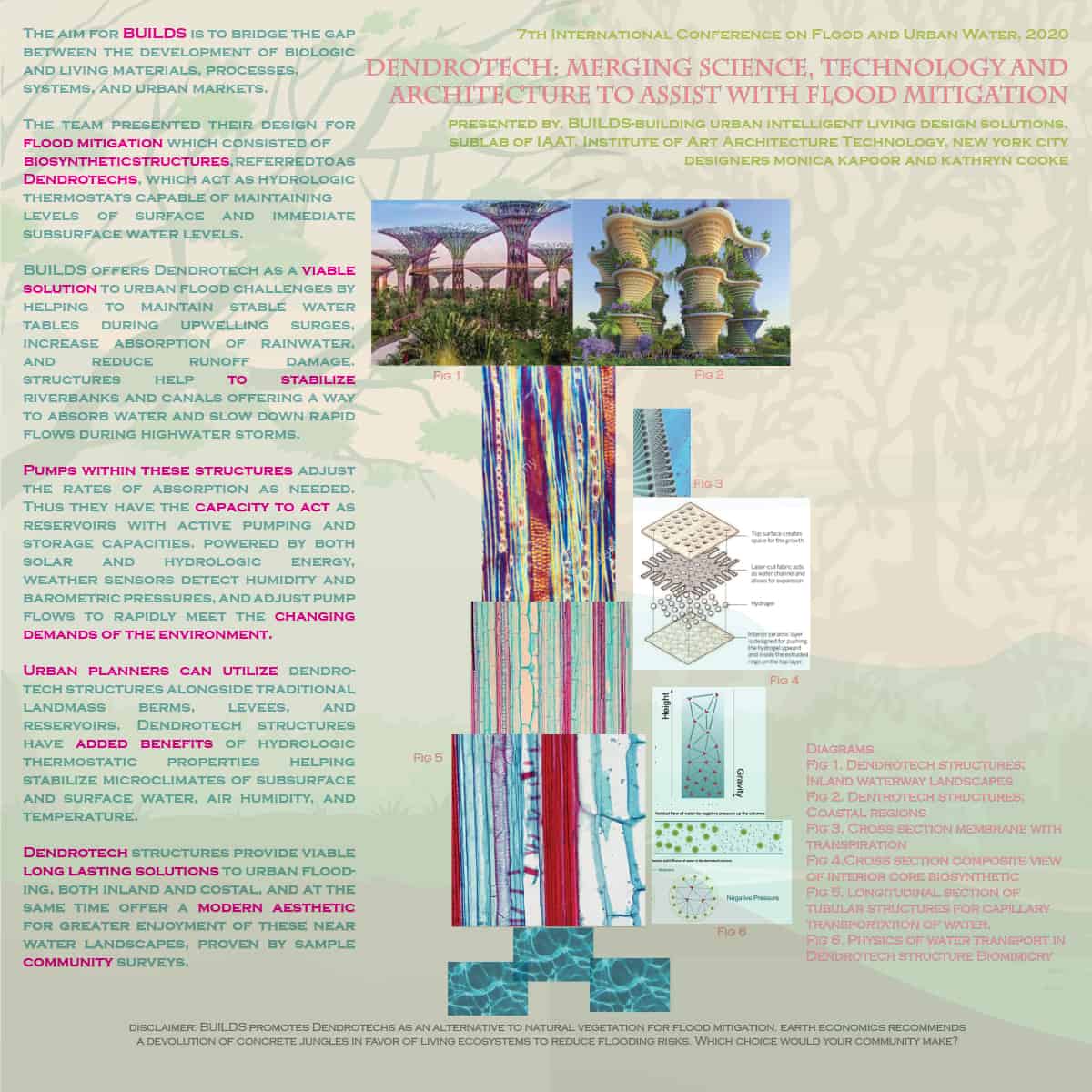Students in the University of Hartford’s Nomad Interdisciplinary MFA took an Art & Ecology course with Christy Gast and Camila Marambio of Ensayos in June, 2020. Ensayos believes that that imagining a better future requires sound science, aesthetic sensitivity, creative experimentation, collaboration, and systems thinking. Students took a deep dive into the water systems around them, as well as the language and outlook of scientific researchers concerned with climate and the environment. For the final project, students worked in pairs. The course was held remotely due to the COVID-19 pandemic, so students began by thinking of a of a mode, body or state of water that connects them. Then, they elaborated on the materiality, political history and economic structures of their connection. Collaboratively they translated the knowledge they gained using Ensayos’ research processes into a format that refers to the scientific poster. They were prompted to “queer” the genre, to make it strange–here are their results.
Beneath Feet: Groundwater +Corporeal Water
Roberta Trentin & Aiyesha Ghani
“We noticed that there were similarities in how our body manages the water we drink and how the water in our systems circulates, from and to the ecosystem.”–RT
“We also created our own signature land acknowledgment glyph based on our personal histories and the history of the lands that these watersheds shape and serve.”–AG
Waterbeing
Julie Chen & Mauricio Vargas
“It is the water that exists as it is, and as it will be; ever-flowing and changing, in and out of our bodies and consciousness.”–JC
“It’s how I imagine a science book about supernatural things like ghosts being explained through quantum theory and psychology.”–MV

FLOOD WORDS
Arnethia Douglass & Katie Groves
“In the changing of seasons there is always flooding”–AD
“The goal was to interlay our two voices together and show harmony in the chaos and contrast of our experiences.”–KG

Dendrotech
Kathryn Kooke & Monica Kapoor
“We understand that natural ecosystems help reduce the effects of high rainfall, and surging bodies of river and ocean water.”–KC
“It felt important to acknowledge that preserving natural ecosystems provide the best flood defenses, but that also takes away the urban from the urban.”–MK


